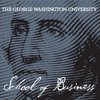GW M.B.A. Graduates are First in Nation to Receive Certificate in Responsible Management
Student-Led Initiative Anchored in UN Principles for Responsible Management Education Advances GW's Sustainability Efforts
Published 06-08-10
Submitted by George Washington University School of Business
Five M.B.A. graduates at The George Washington School of Business (GWSB) are the first in the United States to earn a Certificate in Responsible Management (CRM), the first certification program of its kind in the country. This achievement signals a shift in business education that emphasizes corporate social responsibility and ethical leadership and encourages future business leaders to work toward a more inclusive and sustainable global economy. The CRM aligns with GW's sustainability efforts, which are a significant component within the University's strategic initiatives.
"We tell our business students that they must act responsibly, lead passionately and think globally," said Dean Susan M. Phillips. "The Certificate in Responsible Management is an excellent way to incorporate these values into the students' business school education."
The CRM was created by GWSB faculty and students, guided by the United Nations Principles for Responsible Management Education (PRME). Students from GW's student-led branch of Net Impact, a global nonprofit established to use the power of business to affect positive change, led the charge to get the program off the ground at GW. The CRM is offered through GW's M.B.A. program within the Institute for Corporate Responsibility. The five GW M.B.A. graduates who were awarded the CRM are Todd Ahern, Danielle Bash, Alex Chaikin, Andrew Dawson and Sabina Puppo. GW is one of 235 universities to sign the UN's PRME initiative and pledge to incorporate these principles into degree programs and is the first university to take the next step by initiating a certificate program.
"Our first group of certificate recipients reflects the next generation of business leaders who are dedicated to improving the world, acting ethically and advancing sustainable economic benefits in global society," said John Forrer, associate director of the Institute of Corporate Responsibility. "We are inspired by their commitment, initiative and dedication and are proud of their achievements."
Launched in May 2009, the CRM requires that MBA students complete at least two courses focused on to the UN's PRME, contribute at least 15 hours per semester toward working with a group or club that improves the University community and devote 50 hours toward service learning. A social media component is also required in which students blog about their experiences.
The UN's PRME outlines six specific goals of management education:
- To teach students to work for a more inclusive and sustainable global economy
- To incorporate the values of global social responsibility into academic activities and curricula
- To teach responsible leadership
- To conduct research that has sustainable social, environmental and economic value
- To work collaboratively with business executives
- To facilitate dialogue and debate among business stakeholders
The Institute for Corporate Responsibility conducts research and activities under four primary program areas: environmental sustainability, conflict, business, peace, global stakeholder strategies and corporate governance. The Institute for Corporate Responsibility's aim is to be the world's leading intellectual center for scholarship in the field of corporate responsibility.
GWSB prepares students for professional management careers. The depth and variety of its academic and professional programs, including five specialized master's programs, provide rich opportunities for students in the school's core bachelor of business administration, master of business administration and doctoral programs. GW's undergraduate- and graduate-level international business programs rank among the world's best.
For more information about GW's School of Business, visit www.business.gwu.edu.

George Washington University School of Business
George Washington University School of Business
The George Washington University School of Business has built a globally recognized curriculum, fully imbued with theories and practical applications focused on ethical leadership, corporate responsibility, sustainability, and globalization. Its 125-strong faculty represents 25 countries and reflects the multifaceted character of its location in Washington, DC, a city at the nexus of global policymaking, local and international business and politics enriched by a vibrant nonprofit presence.
The GW Institute for Corporate Responsibility drives cross-sector research, real-world advisory projects, teaching, and knowledge dissemination with a focus on four key areas:

